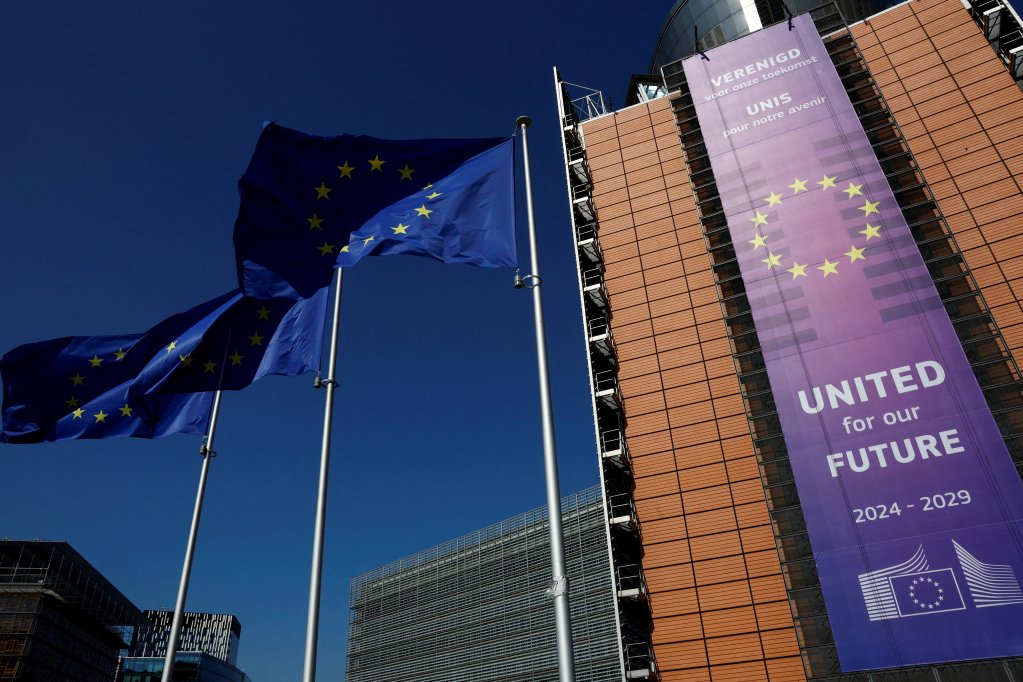Brussels has drawn the lines on migration: under the EU’s new "Solidarity Pool," to be introduced as part of the new EU pact on asylum and migration, southern frontline states like Greece and Italy will get more relief, while countries such as Germany and Poland may avoid taking in migrants, at least until the end of 2026.
The European Commission has released its long-awaited assessment of which EU countries will receive help and which will contribute under the bloc’s new "Solidarity Pool," a key element of the EU Migration and Asylum Pact entering into force in mid-2026.
The announcement marks a pivotal step in the EU’s effort to balance solidarity and responsibility while handling migration across its 27 member states.
Under the system, all EU countries must contribute to managing migration pressures -- either by accepting asylum seekers, making financial contributions, or providing logistical and operational support. Those under excessive pressure may request temporary exemptions.
Read AlsoEurope's far right: The systematic and well-funded manufacturing of fear of migrants
Frontline countries to receive assistance
According to the Commission’s report, Greece, Cyprus, Spain and Italy have been officially recognized as under acute migratory pressure and will be eligible for assistance through the Solidarity Pool beginning next year. The aid will include financial and operational support and may also involve relocation of asylum seekers to other member states.

The designation comes amid continued high numbers of sea arrivals and rescue operations in the Mediterranean. "Greece and Cyprus are under migratory pressure due to the disproportionate level of arrivals over the last year. Spain and Italy are also under pressure because of a disproportionate number of arrivals following search and rescue at sea," the Commission stated.
As part of the system, at least 30,000 asylum seekers are expected to be redistributed annually, with other member states contributing 20,000 euros per person if they opt not to take in migrants. The final figures and distribution plan are still under negotiation among governments.
Read AlsoGermany’s interior minister proposes sharing deportations among EU states
Germany and others could be temporarily exempt
The Commission's analysis indicates that Germany could seek an exemption from taking additional asylum seekers until the end of 2026, arguing that it already hosts a disproportionately high number. If approved, Berlin would also be excused from financial or in-kind contributions to the Solidarity Pool during that period.
The Commission’s list of six countries eligible for exemptions also includes Poland, Bulgaria, Czechia, Estonia, Croatia, and Austria, which may apply for one-year waivers from contributing to the solidarity mechanism, citing "cumulative migratory pressures over the past five years."
Poland, in particular, has welcomed the decision. Prime Minister Donald Tusk wrote on social media:
"Poland will not be taking in migrants as part of the Migration Pact. Nor will it pay for it. That’s already been decided. We act, we don’t just talk!"
Polish Deputy Interior Minister Maciej Duszczyk hailed the outcome as "a huge success," noting that Poland’s accommodation of nearly one million Ukrainian refugees and its crisis on the Belarusian border were key factors. He said these criteria "in practice mean that Poland is exempt from solidarity for many, many years."
Further countries, including Belgium, Bulgaria, Germany, Ireland, France, Croatia, the Netherlands and Finland, were categorized as "at risk of migratory pressure."
The high-risk countries were assessed based on the numbers of migrant arrivals, asylum applications, GDP, and population size. They are marked by "significant migrant populations, strained reception systems, or cases where migration has been weaponized," such as Poland’s standoff with Belarus.
These states, while receiving priority access to the EU’s Migration Support Toolbox, are not exempt from contributing solidarity under the new pact.
Read AlsoPoland to be exempt from EU solidarity deal, as future of migration pact hangs in balance
Ongoing challenges
Some northern states -- including the Netherlands, Belgium, Germany, Sweden, and Finland -- have signaled they will only support the new distribution rules if there is stricter enforcement of the Dublin Regulation, which requires that asylum claims be processed in the first EU country of entry.
Commissioner for Home Affairs Magnus Brunner described the framework as a "parallel development" of solidarity and responsibility, adding that "countries facing disproportionate pressure are treated differently," Politico reported.

The Commission noted a 35 percent decline in irregular border crossings between July 2024 and June 2025, reflecting improvements in migration management. However, persistent challenges remain -- including irregular arrivals, overstretched asylum systems, and the ongoing accommodation of refugees fleeing Russia’s war in Ukraine.
To strengthen border defenses, Brussels also announced a 250 million euro fund to help member states purchase drones and counter-drone systems to combat hybrid threats and airspace incursions along the EU’s eastern frontier.
Read AlsoEU Parliament greenlights stronger Europol powers to combat smuggling, raising privacy concerns
Next steps
Negotiations among member states will now determine the final size of the Solidarity Pool, the number of relocations, and financial contributions. The European Commission will assess each country’s situation, while the Council of the EU will decide which states qualify for exemptions.
Commissioner Brunner is scheduled to brief MEPs on Thursday (November 13), though the European Parliament has no formal lawmaking power over this process. Once approved by the Council, the plan will become legally binding, solidifying the most significant reform of the EU’s asylum system in nearly a decade.
Read AlsoSome EU member states call for speedier repatriations
With AFP, dpa, Reuters
